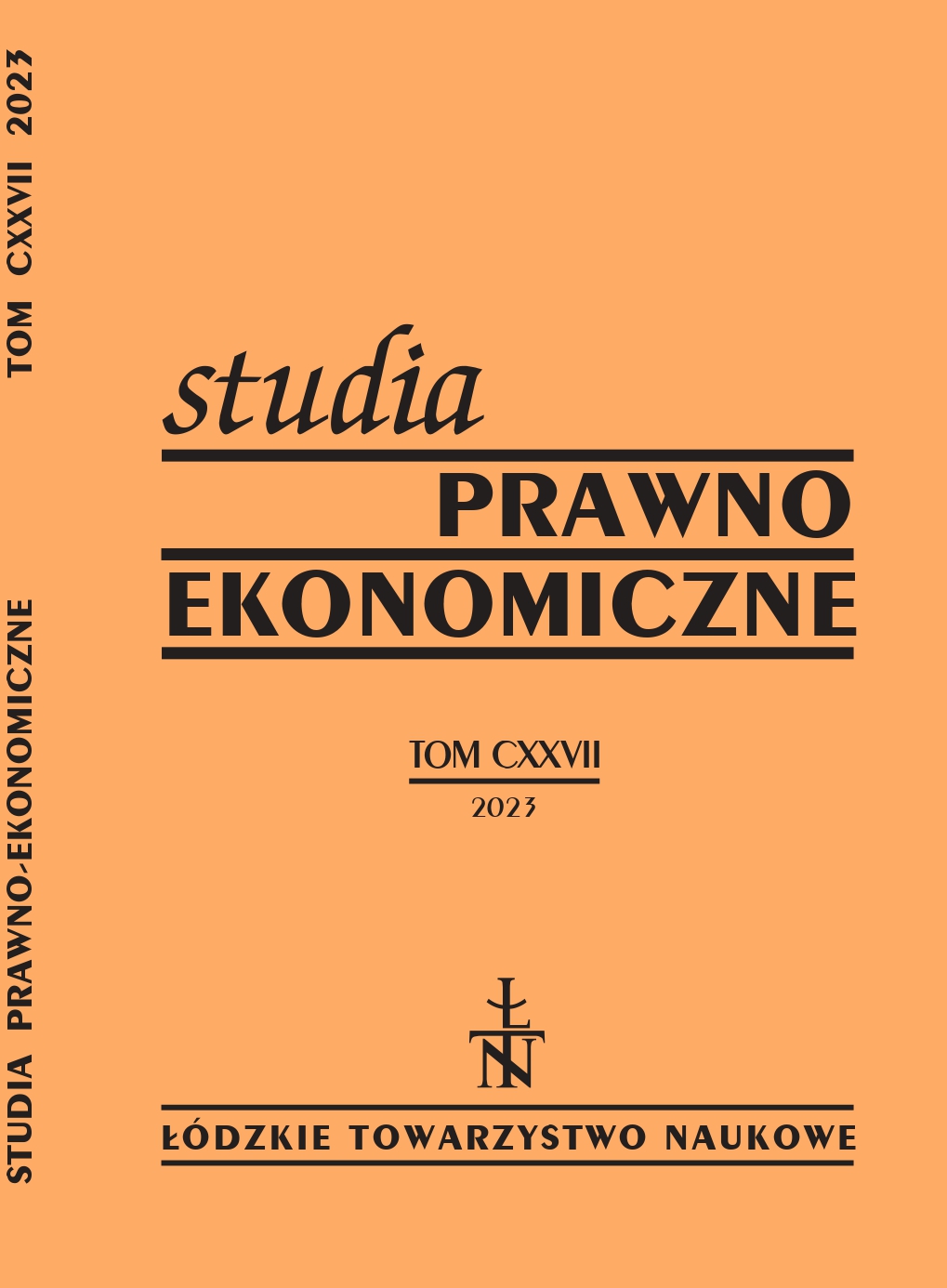PROBLEMATYKA WYGAŚNIĘCIA MANDATU ŁAWNIKA SĄDÓW POWSZECHNYCH ORAZ JEGO ODWOŁANIA
THE ISSUE OF THE EXPIRY OF A COMMON COURT LAY JUDGE’S MANDATE AND HIS DISMISSAL
Author(s): Łukasz KRZYŻEWSKISubject(s): Criminal Law, Civil Law, Court case
Published by: Łódzkie Towarzystwo Naukowe
Keywords: lay judge; dismissal; expiry; mandate;
Summary/Abstract: Background: The subject of research in this study are practical and theoretical problems related to the procedure for the expiry of the mandate of a lay judge and his dismissal. In particular, the focus was on the obligatory and optional grounds for dismissing a lay judge and the expiry of his mandate, entities participating in this procedure and the consequences of initiating the dismissal procedure. The statutory regulation resulting from the law on the system of common courts was also analysed. It was also referred to other legal provisions, in particular the regulations of crim- inal procedure.Research purpose: The aim of the research is to highlight the legal gaps regarding the discussed issue and the practical problems resulting from it and its consequences. With regard to emerging practical problems, options for solving them were also presented. In addition, the author aims to formulate de lege ferenda postulates that would allow for a better fulfilling of legal norms and strengthening the situation of lay judges.Methods: The text uses mainly the theoretical-legal method as well as the dogmatic-legal method. The focus was on the analysis of legal regulations of the discussed institution, as well as jurisprudence (of common courts, administrative courts and The Supreme Court) and the views of representatives of criminal procedural legal doctrine.Conclusions: The regulation of discussed issue is flawed in many ways. There are numerous il- logicalities and inconsistencies in the provisions, especially when compared to the jurisprudential equivalent position of professional judges and social judges. In addition, certain issues are also ambiguous and can be interpreted in a different ways, which makes it difficult to execute statutory dispositions, especially in regards to the selection of entities responsible for individual activities of the dismissal procedure, i.e. the superior of the lay judge.
Journal: Studia Prawno-Ekonomiczne
- Issue Year: 2023
- Issue No: 127
- Page Range: 23-37
- Page Count: 15
- Language: Polish

